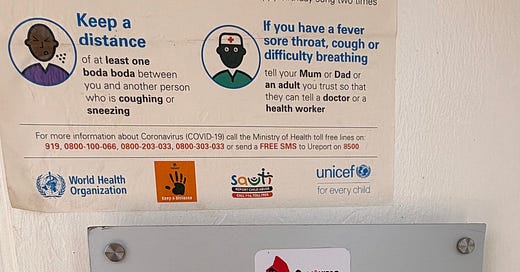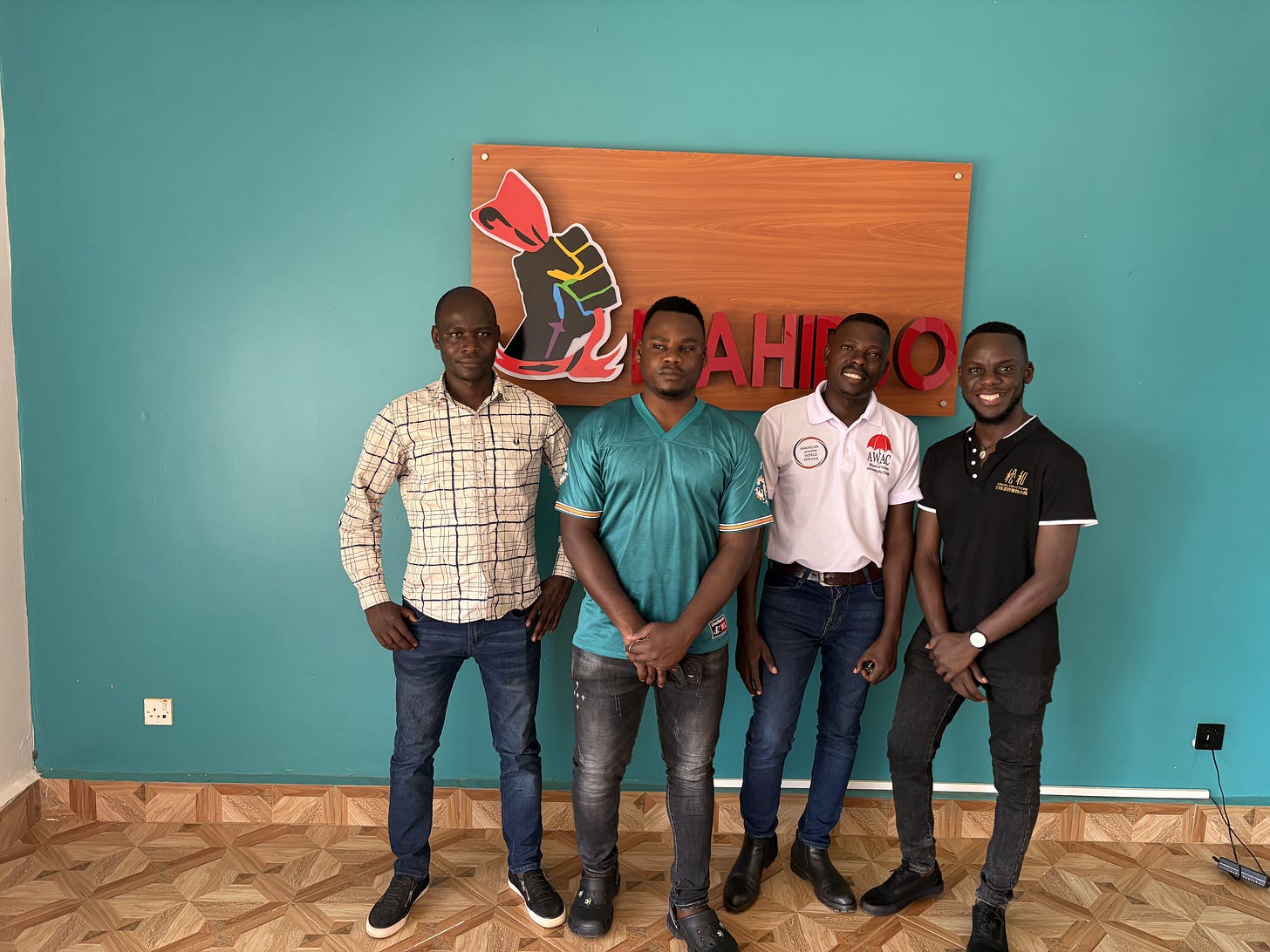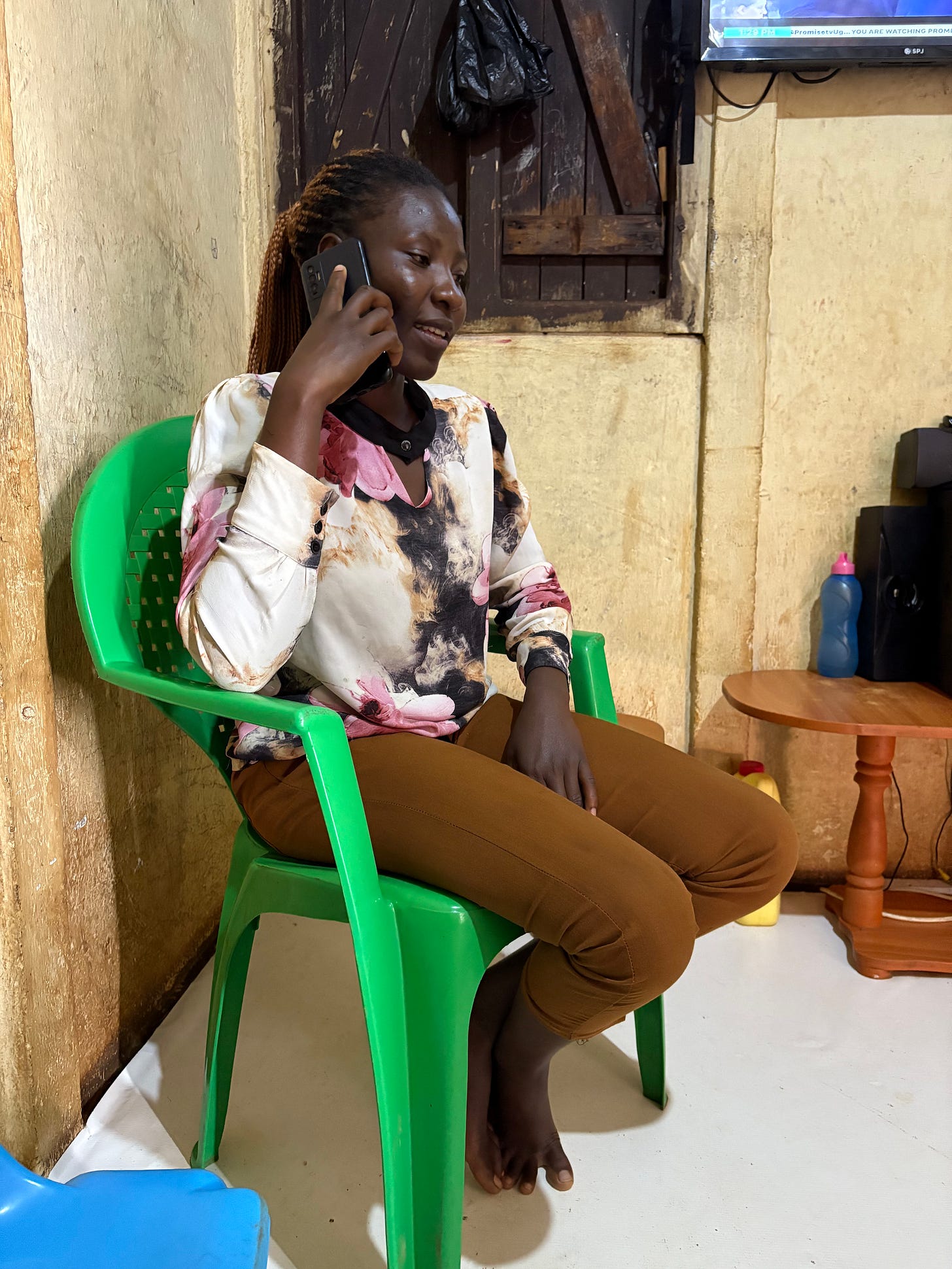Overdue
The Trump administration seemingly missed the deadline to finish its review of foreign aid. Life-saving HIV programs still hang in the balance.
It is now four days past the deadline for the Trump administration to finish its review of foreign aid. For organizations across Africa that provide HIV services, their future depends on the outcome. They are still waiting.
The review, announced immediately after Trump took office in late January, upended the global HIV response. It put an abrupt pause on all HIV programs supported by the U.S. government. Some were subsequently cancelled. Others were sent letters instructing them that they could resume operations until April 19, when the 90-day review was set to finish.
MAHIPSO was one of the lucky ones. The organization runs a drop-in center in Masaka in southwestern Uganda. They draw their clients from among Uganda’s most vulnerable, including the LGBTQI community and sex workers.
The clinic only opened in December 2024, just ahead of this chaos. And it’s impressive. It’s sprawling and airy and full of unlikely amenities, including a resource center stocked with all kinds of useful books and pamphlets.
The shutdown in late January was frustrating, but it ended up not being as disruptive as the MAHIPSO team feared. In fact, after they were allowed to restart services in mid-February, their clients doubled from 150 a week to 300. Many of them were displaced from other clinics that had closed. They had heard that MAHIPSO was still operating, offering a last, best option for accessing HIV treatment or prevention.
As the April 19 deadline approached, the team at MAHIPSO were told to get everything in order.
“We did the reports. Did the auditing,” said Joel Sendi, MAHIPSO’s programs director. “We’re waiting for what is coming up.” They have heard nothing. Not from the U.S. government about whether it will continue to fund their clinic or from the Ugandan organization that actually receives the funds and then disperses them to MAHIPSO.
The team does not know whether they can continue to provide services or if they need to shut down again.
“We have to try as much as possible,” said Sendi, who is an incredibly kind and eternally optimistic person. “We don’t want our people to lag behind. We want adherence to continue. We have to move, of course.”
I spoke to the leaders of two other Ugandan HIV service providers this week who are in the same position as MAHIPSO. This includes Wamala Twaibu, the head of the Uganda Harm Reduction Network, who I wrote about last week. His organization runs the only opioid-substitution clinic in Uganda’s capital, Kampala. It has become a hub for providing HIV services to people who use drugs.
For him, the wait is growing interminable.
“Bro, the truth is, we are just scared of what is next,” he texted me.
The despair in Uganda seems to result directly from the utter confusion in Washington. The Trump administration actually told the U.S. Congress at the end of the March that the review was over. This was after Secretary of State Marco Rubio announced that he had cut 83 percent all of the programs under the U.S. Agency for International Development, which was responsible for most of America’s funding for the global HIV response. This was devastating, but seemed to at least spare organizations like MAHIPSO, which received their funds through the U.S. Centers for Disease Control and Prevention, or CDC.
Then came word that the CDC funding was also at risk. A budget proposal from the Trump administration cut out nearly all of the CDC’s global HIV funding, as well.
It seemed likely that U.S. funding for the global HIV response was essentially ended, aside from some money for HIV treatment programs. Still people in Uganda held out hope that April 19 might offer some kind of reprieve.
Then, just ahead of that deadline, came reports from Washington that the review has been extended for an additional 30 days. But it was unclear whether that means there might still be reversals of the announced cuts.
Meanwhile, none of this, including the possible 30-day extension, has been communicated to the people actually providing HIV services in Uganda. That’s in keeping, of course, with an administration that has shown no concern at all for how its decisions might upend people’s lives.
The likely reality is that the HIV funding is gone, no matter how many extensions the Trump administration gives itself. But when you are confronted daily with lives hanging in the balance of those decisions, how can you be anything but hopeful if you hear rumors that you’ve been given another 30 days? When do you grow despondent?
On Monday, two days after the April 19 deadline, I started getting WhatsApp messages from an unknown number. It turned out to be Richard, the husband of a care worker I had interviewed in early April. He had been away when I met his wife, Miriam Wana, in early April for an interview.
Miriam is an absolute delight of a person, radiating self-assurance and kindness. I had been put in touch with her because she had been working at an HIV clinic in Kampala, helping to identify babies and young children who might be HIV-positive. She then connected them to HIV testing and to vital resources, including daily food deliveries that ensured they had enough to eat.
Her work, funded by the U.S. government, was paused in January and then eliminated entirely. She has spent the last months agonizing over the fate of the children she supported. When she can afford to, she tries to call their families just to make sure they are still alive.
Though her program was cancelled, she thought April 19 might deliver some respite. Perhaps not the restoration of all of her program’s services, but at least some funding to continue their outreach to these children. To make sure they are still taking their HIV treatment.
When the deadline came and went with no news, Miriam became disconsolate. That prompted her husband to text me. He could not cheer her up. He could barely get her to speak. He wanted to know if there were any HIV programs that were still operating so she could apply for a job and try to keep helping those children.
I had to tell him it’s not clear whether there are any programs that are still running. The Trump administration hasn’t bothered to let anyone know.








I wish I could do something. That we have to just take this until the next election seems so unsatisfactory!